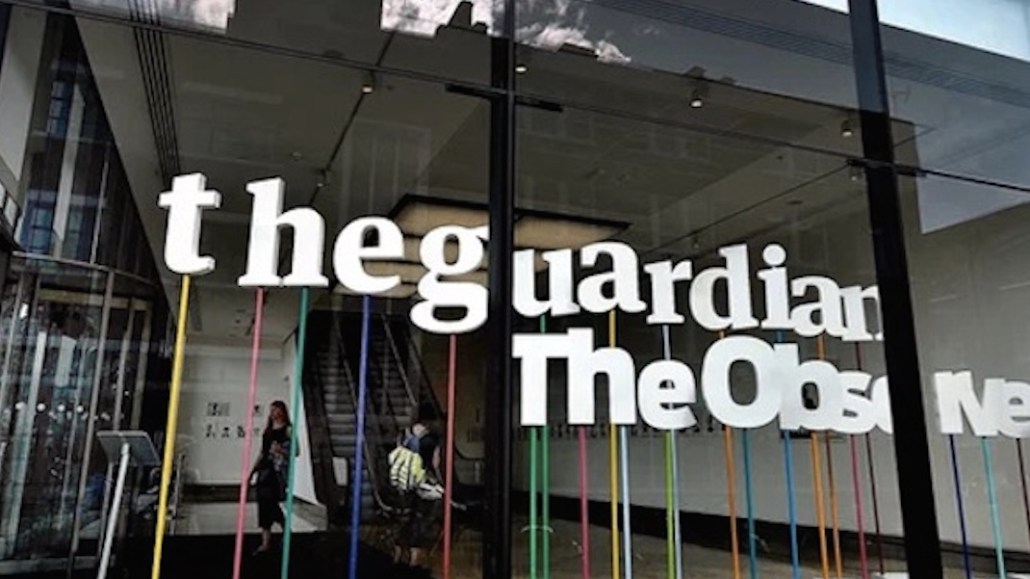Secure your place at the Digiday Media Buying Summit in Nashville, March 2-4

The Guardian is pushing harder into philanthropy as it — like other news publishers — struggles to find a profitable model for news online.
The U.K. publisher announced that it’s launched a new nonprofit, at theguardian.org, to raise money from people and foundations to support its journalism. The nonprofit has raised $1 million in grants since it was quietly founded late last year, from groups including the Skoll Foundation to support coverage of climate change, Humanity United to cover slavery and Conrad N. Hilton Foundation to support reporting on early childhood development. That’s part of $6 million the nonprofit has raised in the past year in multiyear commitments.
Rachel White, global evp of philanthropic and strategic partnerships and president of theguardian.org, said the creation of the nonprofit will make it easier to raise money from big foundations and smaller ones that only make contributions to tax-exempt organizations.
The Guardian has an unusual structure in that it’s owned by the nonprofit Scott Trust, whose investments help fund the Guardian’s journalism, but as advertising revenue growth has been challenged, the Guardian has looked to other sources of revenue, such as individual memberships, reader contributions and philanthropy. The Guardian’s philanthropic fundraising arm is a team of four that has doubled in the past year and is looking to add another full-time fundraiser.
White said she couldn’t say if the Guardian was having a harder time attracting advertising to its journalism today when some brands are extremely averse to their ads appearing next to controversial content. But she said having the Scott Trust and funding from like-minded organizations was a way to fund the Guardian’s coverage of issues that are expensive to report on and that don’t easily lend themselves to ad support. Philanthropy remains a small funding source but one that supports core elements of the Guardian’s editorial agenda.
“The impetus is, it’s a natural fit, and why not explore opportunities where there seem to be natural synergies?” she said.
While the ad model has its limitations for journalism, philanthropy has its own challenges. It has raised concerns that the donor’s interests can sway the editorial product.
White said journalism funded by philanthropy would be labeled as such and would be editorially independent of its funding source. However, she also acknowledged that philanthropic giving works on a long timetable in the decision-making process and length of contributions. “You could start a conversation today and be signing a grant agreement nine months from now,” she said. “It’s not instantaneous.”
But she pointed to signs that philanthropic organizations are increasingly interested in supporting journalism.
“It’s exciting for the potential it holds, and if it can serve as a model for the industry that could be replicated, we’d be happy to see that happen, too,” she said. “We’re all struggling with the same challenges.”
More in Media

WTF is a creator capital market?
What is a creator capital market, what does it mean for creators looking to diversify revenue, and why is it so closely tied to crypto?

Media Briefing: Publishers explore selling AI visibility know-how to brands
Publishers are seeing an opportunity to sell their AI citation playbooks as a product to brand clients, to monetize their GEO insights.

Creators eye Snapchat as a reliable income alternative to TikTok and YouTube
Figuring out the Snapchat formula has been very lucrative for creators looking for more consistent revenue on a less-saturated platform.








